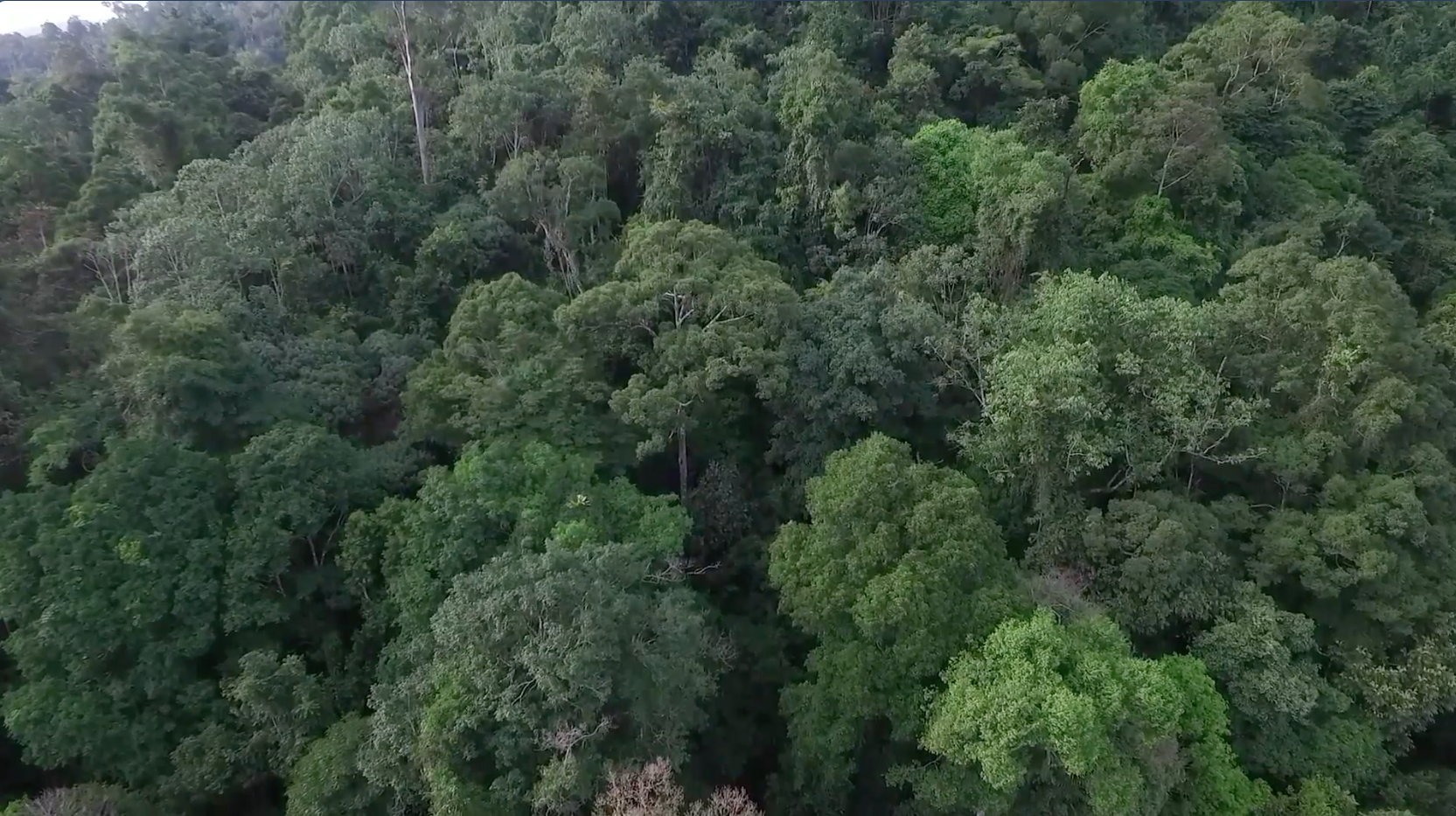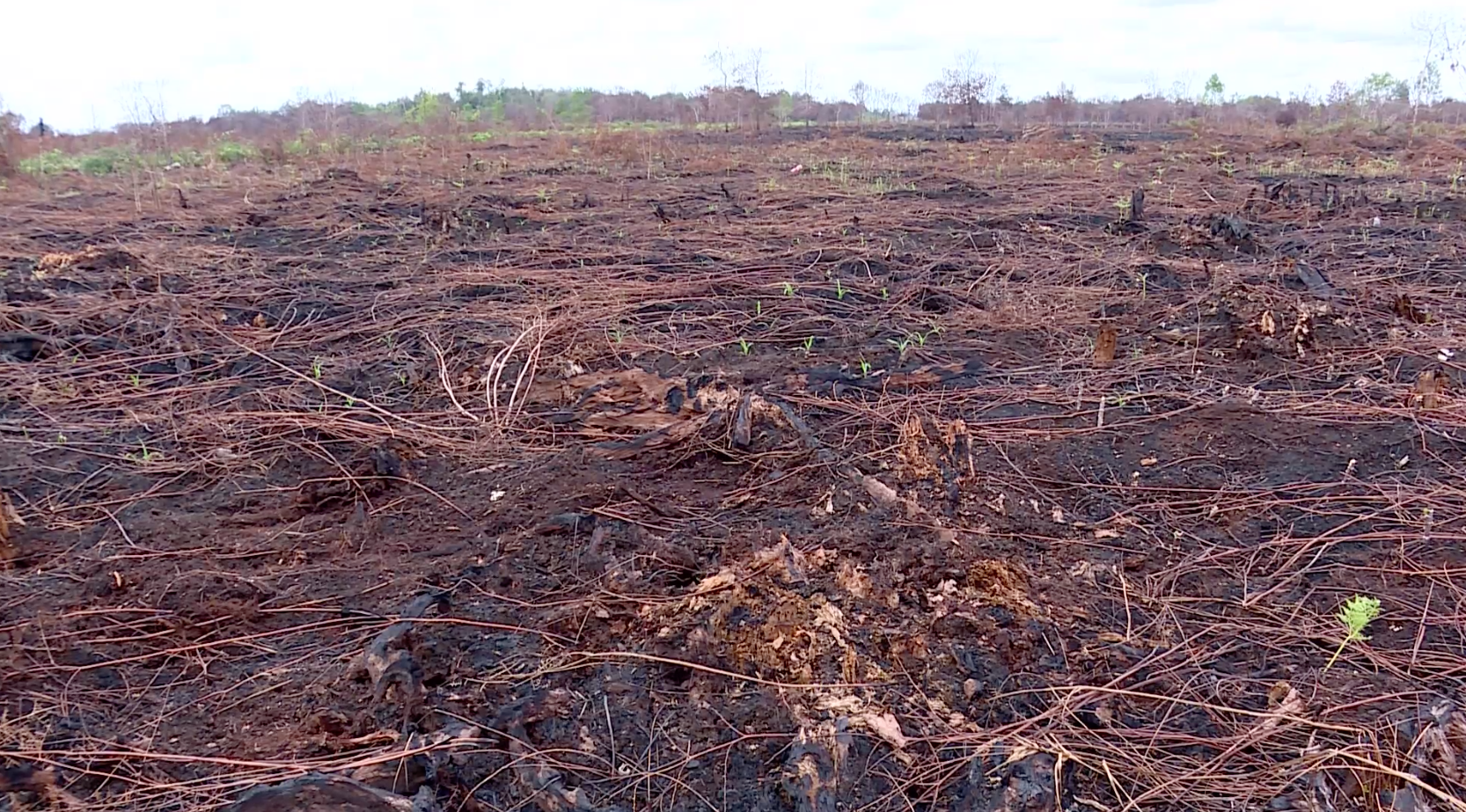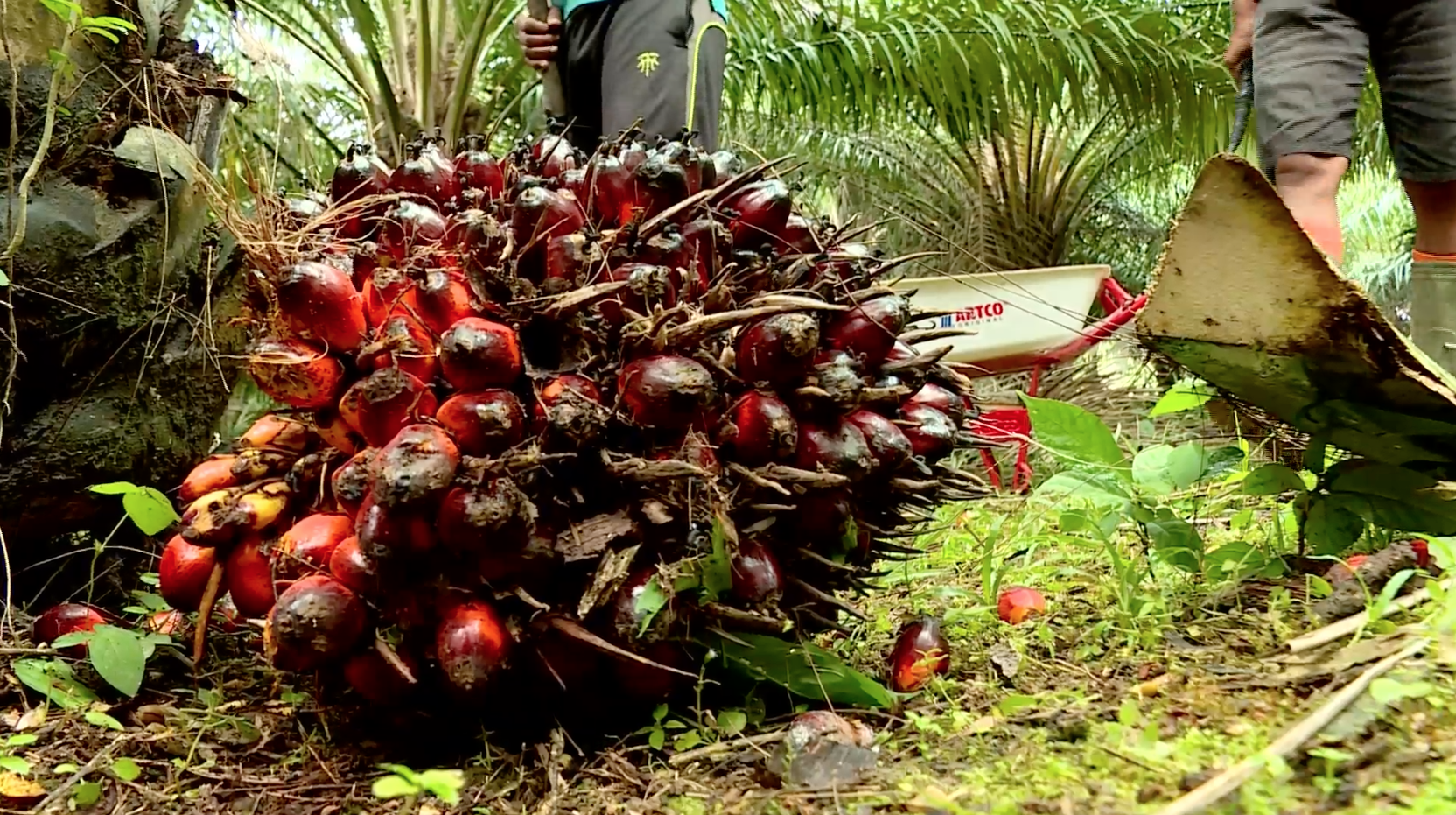

The Indonesian government is hoping to save what's left of the country's tropical rainforests with the new moratorium. /CGTN Photo
Indonesia's Ministry of Environment and Forestry has proposed a moratorium on protecting the country's primary forests and peatlands, a move that has been almost eight years in the making.
The plan will aim to protect certain areas of the forest from clearing mainly for industrial plantations and logging concessions. Indonesia's Minister of Environment, Siti Nurbaya, has been vocal about stopping forest-clearing in the country, stating that she will stop issuing business permits in primary forest and peatland areas permanently.
Yuyun Indradi, an environmentalist, says while this new plan is positive it comes across as redundant to him.
"The moratorium outlines the protection of primary forests and peat lands. However, most of those forests are already being protected by higher laws. The government now needs to focus more on protecting secondary forests." said Yuyun.

Indonesia is hoping to reduce its greenhouse gas emissions by 29 percent by 2030. /CGTN Photo
Since 2011, the government temporarily stopped issuing new permits in primary forests and peatlands. The policy is closely renewed and monitored every two years. The last moratorium was signed by President Joko Widodo and will expire in July 2019. Therefore, the government hopes that the policy to stop issuing those permits to companies will finally be made permanent.
Siti Nurbaya said the discussion on the termination of this new moratorium has already reached its final stages.
Indonesia's deforestation rate has been declining and somewhat stabilizing in recent years. The highest deforestation rate, which wiped out 3.5 million hectares of land, occurred in the period between 1996 to 2000.
During 2015 to 2016 the deforestation rate reached 1.09 million hectares due to forest fires. In the 2017 to 2018 period the deforestation rate was just merely 0.44 million hectares. A solid improvement but experts still say that’s not enough to save the country's tropical rainforests.
The plan is aligned with Indonesia’s goal to reduce its greenhouse gas emissions by 29 percent by 2030 and it further shows Indonesia's serious stance on climate change.

Indonesia is one of the largest exporter of palm oil. The industry is responsible for much of the country's economic growth. /CGTN Photo
One of the main worries is the impact it might make on the country's economy especially being one of the largest export of palm oil. The industry has quickly become an important driver for economic growth.
But Ari Rompas, a forest campaigner at Greenpeace Indonesia, is hoping the Indonesian government stops relying on palm oil as the main source of income for the country.
"Protecting Indonesia's rainforests equals to protecting its economy. Because the consequences of deforestation have resulted i8n a loss of Indonesia's rich biodiversity and other ecological disasters. It's time for the government to realize that converting rainforests to plantations is not the only way to be profitable," said Ari.
Experts like Ari are now encouraging the government to begin efforts to protect secondary forests aside from primary ones. Doing so will begin to strengthen the current policies available. According to research done in 2018, as many as 43.3 million hectares or 48.4% of Indonesia's natural forest are categorized as secondary forests which are currently not protected in the existing moratorium.

Copyright © 2018 CGTN. Beijing ICP prepared NO.16065310-3
Copyright © 2018 CGTN. Beijing ICP prepared NO.16065310-3